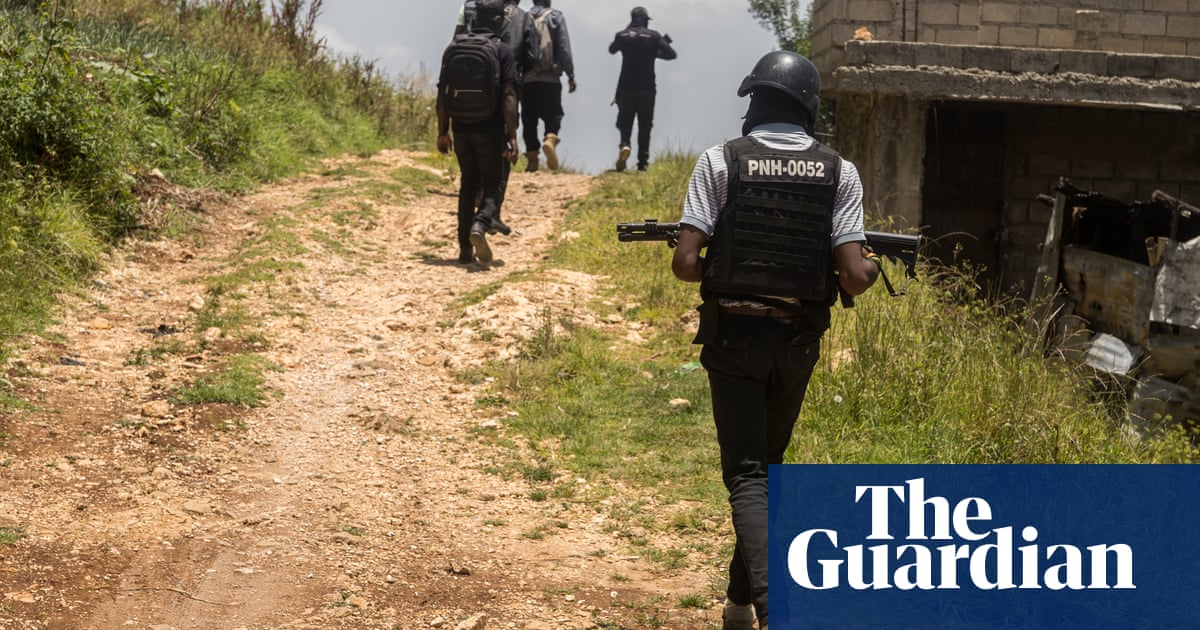### Leaders Unite to Tackle Caribbean Crime and Support Haiti
In a powerful show of solidarity, Caribbean leaders convened to address the escalating issues of crime and violence that are particularly burdening Haiti, where gangs have paralyzed the country. Under the leadership of Jamaican Prime Minister Andrew Holness, newly appointed chair of the Caribbean Community (Caricom), discussions at this week’s summit marked a renewed commitment to regional security and collaborative efforts against criminal activities.
#### A Priority on Regional Security
Taking on the chairmanship, Holness emphasized that ensuring security in the Caribbean would be a “matter of great priority.” During the summit’s opening remarks, he voiced concerns about the slow pace of international support for Haiti. He highlighted the need for immediate action, committing to prioritizing assistance for the nation amid its ongoing crisis, which has been likened to a humanitarian emergency.
#### The Existential Threat of Crime
Antigua and Barbuda’s Prime Minister Gaston Browne reinforced the idea that crime poses one of the most significant existential threats to the Caribbean region. He called for a collaborative approach among Caricom countries, stressing that criminals are becoming increasingly sophisticated. Browne underscored the importance of addressing transnational criminal activities collectively, recognizing that threats extend beyond local borders.
#### A Call for Regional Coordination
St Kitts and Nevis Prime Minister Terrance Drew echoed Browne’s sentiments, welcoming a unified regional strategy. He pointed out that multiple levels of security issues plague the region, with Haiti being the most vulnerable. Drew advocated for coordinated efforts among Caricom member states to tackle the pervasive security challenges effectively.
#### Haiti’s Dire Situation
As leaders gathered in Montego Bay, a stark reminder of Haiti’s plight surfaced with reports of the destruction of the historic Hotel Oloffson by gangs. This incident underscores the severe security situation, with the UN reporting over 4,000 deaths in Haiti in just the first months of the year—marking a 24% increase from the previous year. Haiti’s Transitional Presidential Council member, Laurent Saint-Cyr, emphasized the need for stronger regional cooperation to combat the illicit arms and drug trafficking that exacerbate the crisis.
#### Proposing a Robust Response
Holness took the initiative to propose a regional justice and security framework, advocating for a comprehensive and synchronized response to the violence. He likened the approach needed to combat gangs to a “war on terror,” aiming to dismantle their influence and disrupt their financial networks. The call for action reflects growing concern among Caribbean leaders about the evolving nature of crime in the region.
#### The Impact of Gun Trafficking
Former Caricom chair Mia Mottley spotlighted the impact of gun trafficking, particularly from the United States. She lamented how Caribbean nations pay a high price for the Second Amendment rights of American citizens, connecting it to the rampant violence across the region. In line with these concerns, significant steps have been proposed, including new measures in the US to address this damaging flow of firearms into the Caribbean.
#### Jamaica’s Crime-Fighting Strategies
Despite the grim landscape, there is hope. Jamaica has reported a notable decline in murder rates, attributing a more than 40% reduction in fatalities in the initial months of the year to strategic investments in national security. During the Caricom meeting, Holness shared a glimpse of Jamaica’s innovative crime-fighting technologies and strategies designed to enhance law enforcement efficiency and improve community safety.
#### Strengthening Judicial Cooperation
Mottley also highlighted the importance of the Caribbean Court of Justice (CCJ) as a crucial institution for regional stability and justice. She urged more countries to recognize the CCJ as their final court of appeal, emphasizing the need for public education on this critical issue. The CCJ currently serves several nations, and its expansion is seen as a vital step toward reinforcing judicial independence and regional governance.
#### The Path Forward
As Caribbean leaders grapple with the multifaceted challenges of crime and violence, the drive for collective security and humanitarian support remains paramount. The commitment to work together more closely will not only aid Haiti but also strengthen the entire Caribbean region against the rising tide of organized crime and violence. The summit marks a pivotal moment for the Caribbean in its quest for peace, safety, and sustainable development.


